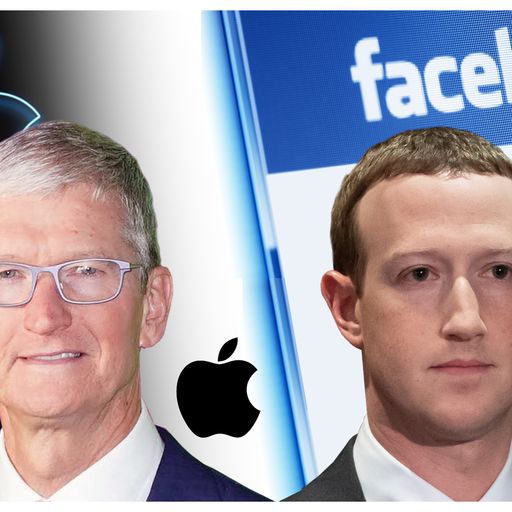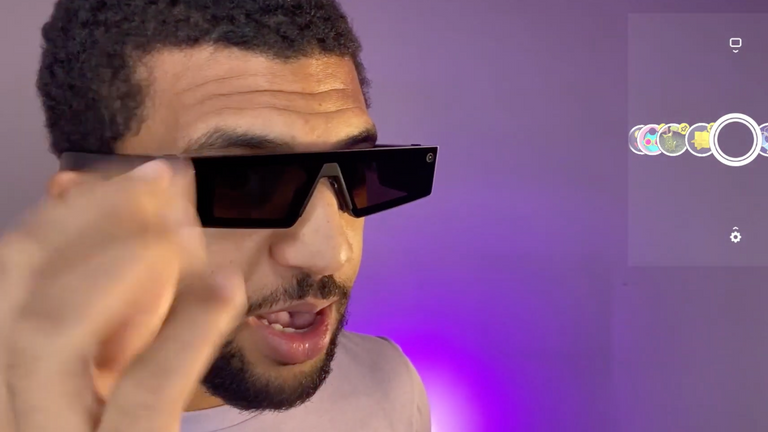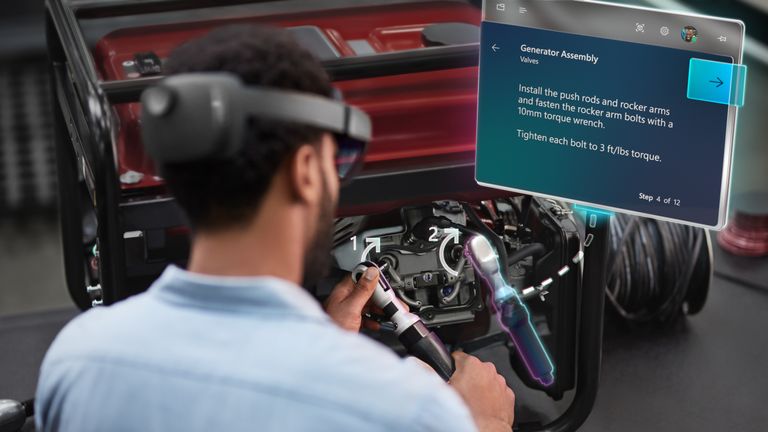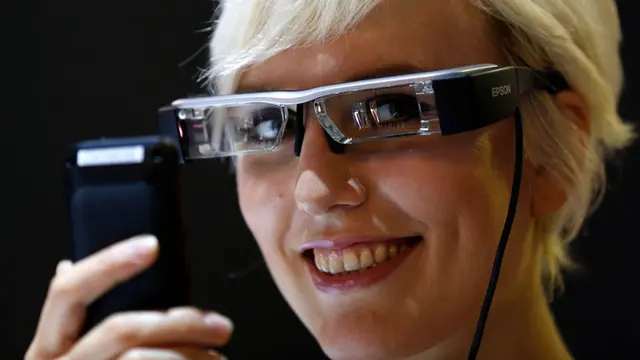The age of smart glasses is upon is, or so reckon Facebook and Apple, both of which are expected to launch devices in the near future, betting serious money that this isn't just another fad.
Consumers around the world already spend tens of billions of dollars a year on wearable technology, especially wristwear, but previous attempts to launch smart glasses
have ended in disappointment
.
In the near future, we're set to see a lot of companies try to muscle in to this market, potentially upgrading existing specs or launching entirely new product lines.
So where are we at and what can we expect?

The Battle of Big Tech begins as Apple and Facebook fight to reshape industry
As wearable devices, smart glasses can offer a range of features, from the visual - including transparent heads-up displays and augmented reality (AR) - to audio, connecting wearers to voice assistants.
The long-term aim for both
and Apple
is to launch devices that offer an AR digitally-generated overlay superimposed over the world the wearer can actually see.
Facebook's first smart glasses will be launched this year, according to
Mark Zuckerberg
, although a specific date has not yet been announced by the company.
Back in January, the company's chief executive said it was "still working on some of the foundational technology to underpin these - and the ultimate product is still some years away".
"This year we're excited to deliver a first glimpse of what will be when we launch our first pair of smart glasses," he added, manufactured with premium eyewear brands Ray-Ban and Luxottica.
In a more recent earnings call, he said that the Facebook glasses "let you do some pretty neat things," but suggested they were just a stepping stone on the way to "full augmented reality glasses".
The ultimate aim according to Mr Zuckerberg was "to help build the metaverse", a concept coined in the 1992 sci-fi novel Snow Crash to describe a kind of three-dimensional virtual reality version of the internet.
Mark Zuckerberg answers: 'What is the metaverse?'
It's a virtual environment. We can be present with people in digital spaces. And you can kind of think about this as an embodied internet that you're inside of rather than just looking at. And we believe that this is going to be the successor to the mobile Internet.
You're going to be able to access the metaverse from all different devices and different levels of fidelity from apps on phones and PCs to immersive virtual and augmented reality devices.
Within the metaverse, you can build a hang out, play games with friends, work, create and more. You're basically going to be able to do everything that you can on the internet today, as well as some things that don't make sense on the Internet today like dancing.
The defining quality of the metaverse is presence, which is this feeling that you're really there with another person or in another place. Creation, avatars and digital objects are going to be central to how we express ourselves and this is going to lead to entirely new experiences and economic opportunities.
I think that, overall, this is one of the most exciting projects that we're going to get to work on in our lifetime.
Apple meanwhile has been filing patents for AR technology for more than a decade, with a range of such features already available on iPad and iPhone.
"AR is big and profound," said Apple's chief executive, Tim Cook, back in 2017. "And this is one of those huge things that we'll look back at and marvel on the start of it."
Bloomberg reports Mr Cook is sticking around at the company for the launch of one final product line, rumoured to be Apple's smart glasses, before stepping down as CEO.
Apple Glasses aren't expected to launch as soon as Facebook's product, with some analysts suggesting the device won't arrive before 2023, but there are competing suggestions that the company may be launching a mixed-reality headset much sooner than that. However, nothing is as yet confirmed.
Some have suggested that the lack of developer tools for Apple's headset mean it may be launched much later than the Apple Glasses, which can borrow from the AR features available on Apple's mobile devices.
Image:A range of augmented reality features are already available for iPad and iPhone
A year after Snap first launched its Spectacles in 2016, the company was forced to write off $40m (£29m), explaining that it "misjudged strong early demand" for the devices.
But the company persevered, launching a second generation and then third of the devices with a limited increase in the functionality of recording short videos and uploading them to users' Snapchat accounts.
But a fourth version of Spectacles announced this year include a more complete AR function for the first time.
The catch is that these aren't available for sale, and are instead being offered to AR effects creators as the company attempts to solve issues like the 30-minute battery life.

Image:Snap's latest Spectacles offer users some AR features
A consumer prototype for the Google Glass was discontinued in 2016, although the company has been selling an Enterprise Edition.
The product is now mostly used by workers in logistics and manufacturing to provide hands-free access to information via a small screen in the upper corner of the right lens.
Microsoft's HoloLens is on the market, although it doesn't come any cheaper than $3,500 (£2,500), and similar to Google Glass it's mainly targeted at industrial customers.
By presenting holograms alongside the real-world environment, users could receive assistance in a range of situations - from surgery to rebuilding a motorbike, as the advertisements show.

Image: Microsoft's HoloLens product is publicly available
Amazon is another company with a smart glasses range, although the Echo Frames lack any visual features and instead allow customers to access the Alexa voice assistant.
Whether anything more will come from Amazon isn't clear, but there's something to build on if Facebook and Apple's gambles pay off.
 简体中文
简体中文

